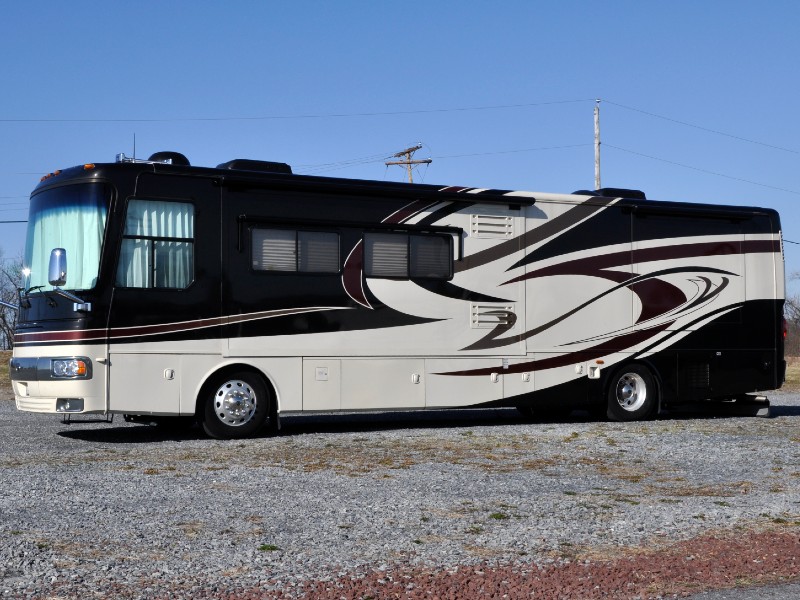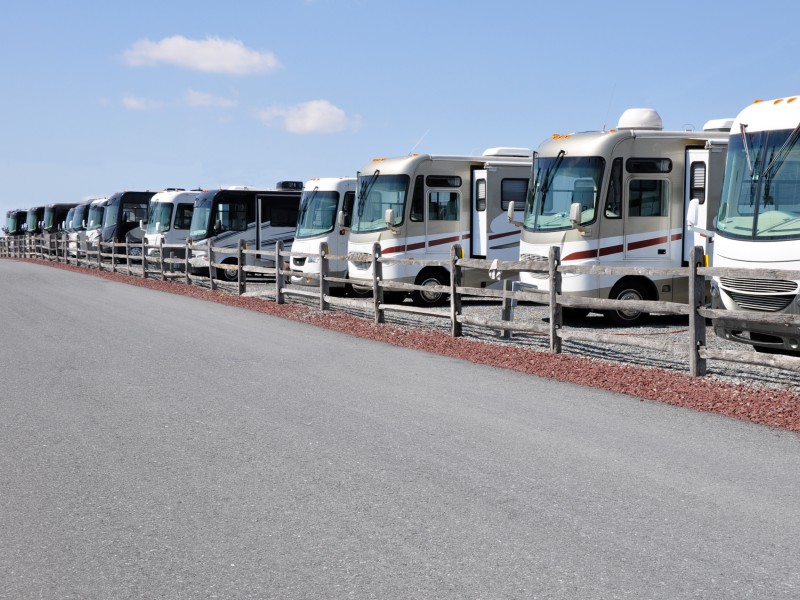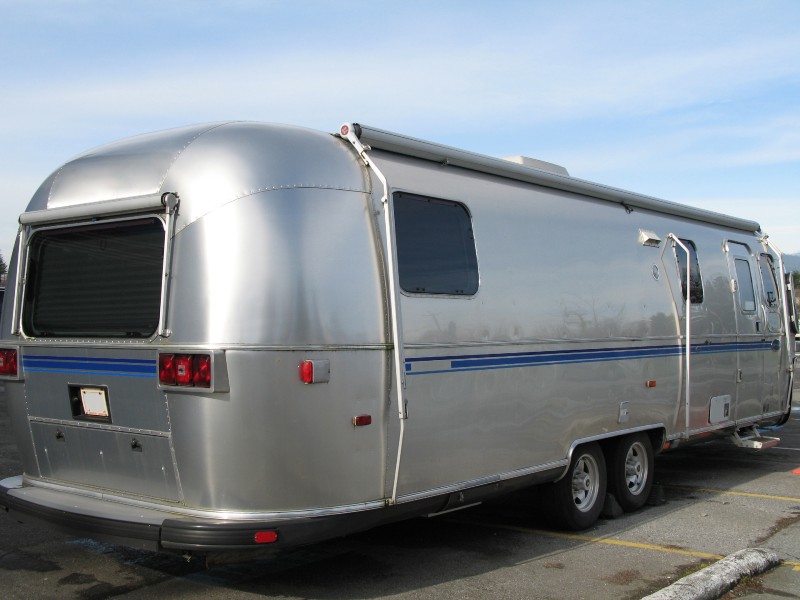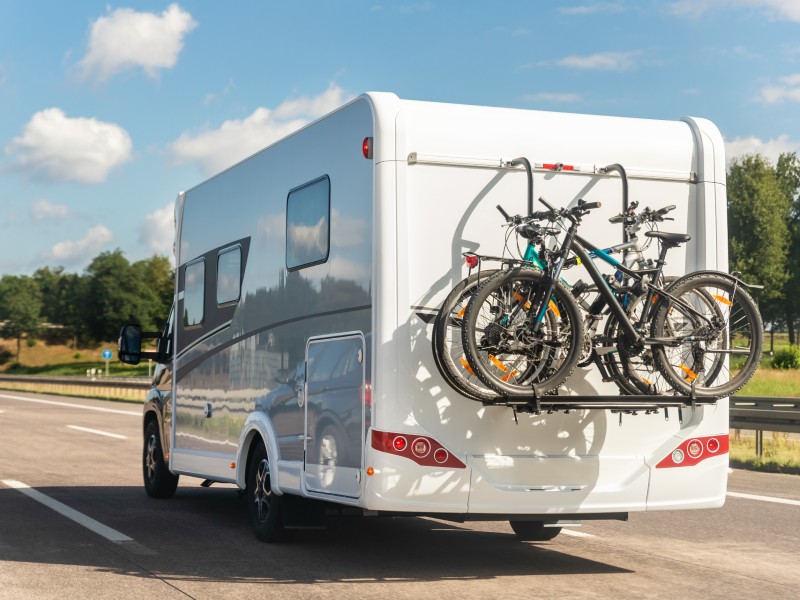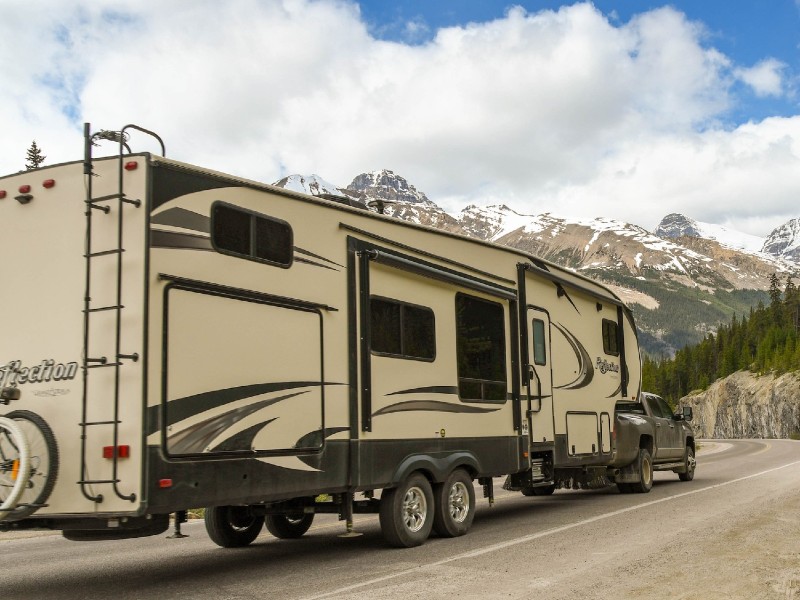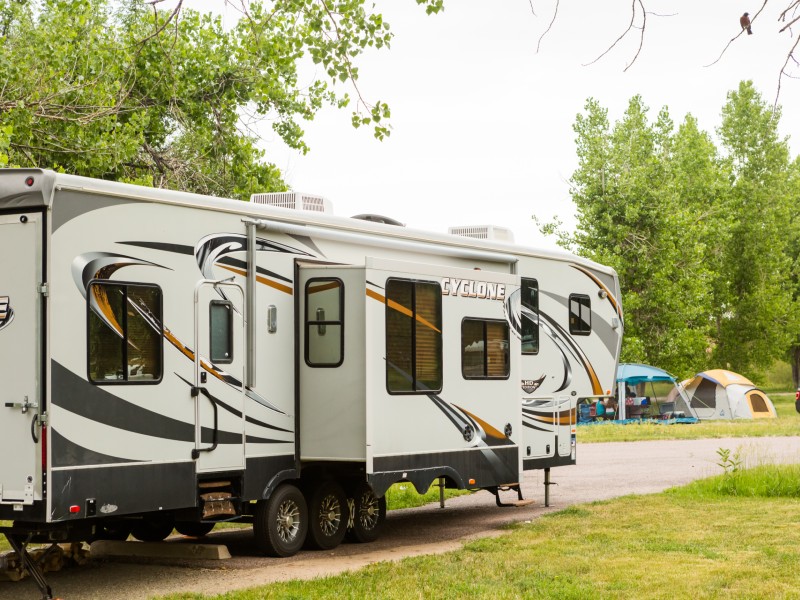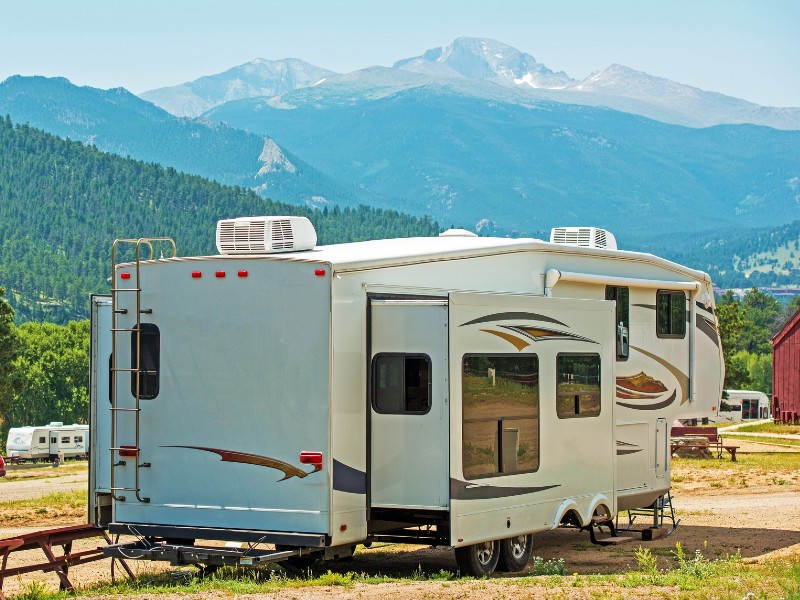For people who own an RV, motorhome, or camper, looking for a good place to store it when not in use or off-season can be a bit of a task.
Because RVs, motorhomes, and campers are specialized vehicles in size and structure, there are fewer choices for proper storage than typical automobile storage opportunities.
Because camping vehicles should be monitored and maintained in a safe location, this should be the first criterion for finding the best spot for off-season storage.
While some standard choices are available for storage, looking at the best opportunities in your area is important.
In compiling a comprehensive list of potential options, it is important to know that not all areas of the country have the same types of storage locations for RVs, motor homes, and camper owners to use.
However, all areas of the country offer some of the basic storage availabilities we have listed. Each camping vehicle location option has pros and cons for the owner that should be analyzed based on need.
For people who are looking for year-round access, it is important to look for a location that allows for this.
The Top Places to Store Your Trailer, RV or Camper Include:
• Standard Campgrounds
• Year -Round Campgrounds
• Private Camping-Resorts
• Camping Vehicle and Boat Storage Facilities
• Auto Storage Facilities
• Used Car Dealers
• Regular Storage Facilities
• Private Land
• RV, Motor Home, and Camper Retailers
• Farms
• Off Season Fairgrounds
• Specialized RVs, Motorhomes, and Camper Storage Facilities
• At a Personal Residence
Campgrounds
For people who have RVs, motor homes, and campers that want a good place to store them, one of the best places can be at a campground.
Most campgrounds have areas they specifically rent out to people who are trying to store their camping vehicles off-season and when not in use. This storage is usually a designated parking spot within the campground and is not a campsite location.
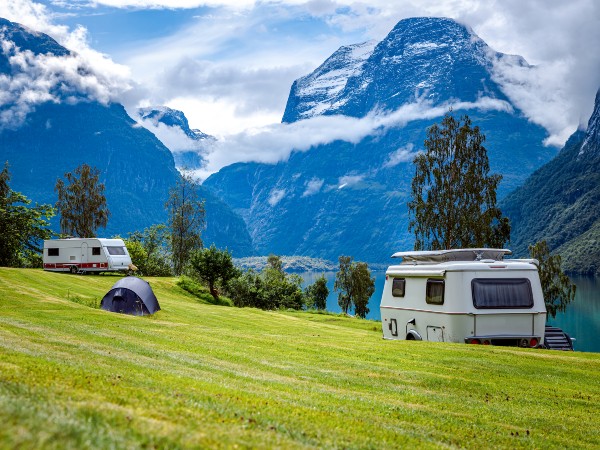
When looking at this as an option, camping vehicle owners should learn more about how their storage is handled and what restrictions they have for gaining access.
Access concerns can be a big issue for camping vehicle owners when trying to plan off-season camping trips to warm climate destinations. Especially if access is limited at the campground because the facility is closed.
Year Round Campgrounds
Unlike traditional campgrounds, year-round campgrounds can be a great option for RV, motorhome, and camper owners who are looking for easy access to their camping vehicle without the worry of off-season restrictions.
Usually, year-round campgrounds offer two different types of camping vehicle storage. The first option is a camping vehicle non-hook-up location.
This means the camping vehicle is just parked in an area that has no services, water, or electricity, and the spot is not a campsite.
The second option many year-round campgrounds offer allows camping vehicle owners to have a campsite they can use and rent year-round. This allows campers to take off-season weekend vacations to their camping vehicle with hookups intact.
The benefit of this is that the campsite location is stable and secured, and other camping items such as rowboats, kayaks, and canoes can often be stored at the site.
Private Camping Resorts
This can be one of the best options available for camping vehicle owners. In many cases, camping vehicle owners can set up a long-term lease for a site, or they may be able to purchase a camping site.
This allows camping vehicle owners to have a permanent location to keep their RV, motorhome, or camper with the ability to move them anytime they choose and always know they have a place to keep it when they return.
In contrast to a standard campground, a campground resort is a privatized campground. They offer exclusive rights to their tenants or landowners.
In many campground resorts, security and access are much greater than traditional campgrounds provide. Additionally, camping vehicle owners often have specified rights attached to their ownership or membership.
Year-round storage of other items, such as canoes, rowboats, kayaks, and other camping equipment, is often available on their sites.
Camping Vehicle and Boat Storage Facilities
While not all areas of the country have this type of storage, these businesses are often found near campgrounds and camping resorts that have a body of water where owners will need year-round storage.
Usually, places that have boating storage located near high-end campgrounds or campground resorts will offer some camping vehicle storage as well.
In many of these cases, the business owner provides repairs to boats and camping vehicles as well. They are often open year-round, and access is readily available.
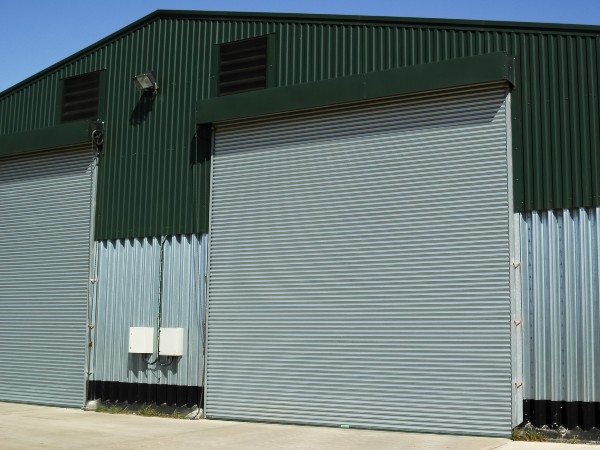
Specialized RV, Motor Home, and Camper Storage Facilities-
While this can be a great place to store a camping vehicle, it is an uncommon business to find.
Specialized camping vehicle storage facilities often cater to high-end camping vehicle owners, including motor homes, expensive fifth-wheel units, and posh RVs. In some of the more elite facilities, some buildings offer covered protection and climate control.
The monthly fees for this can be a bit pricey, which is why they are usually a rare type of camping vehicle storage to find.
Auto Storage Facilities
While this is not considered the best option, it certainly is an option. One of the reasons this can be a bit difficult storage location is because of potential limitations on space sizes.
Because of this, the camping vehicle owner may find it nearly impossible to maneuver their vehicle in the storage facility area.
Since auto storage is usually made for automobiles that rarely go beyond 14 feet, the storage may be unsuitable if there are no open areas.
If the bulk of the storage area is suitable in heights only for cars and vans, this may be an impractical choice unless you own a pop-up camper.
Used Car Dealers
Depending on the used car shop, this can either be a good or bad option. If the land the car dealership has for rent is easily accessible and ample in space. In that case, this can be a good option, especially since it’s a business location with security cameras.
This will provide extra safety measures for the camping vehicle owner against vandalism.
However, it should be noted; some used car dealerships can be difficult to deal with. If they suddenly get an influx of cars, they may request the vehicle be moved without much notice.
This can put undue stress on a camping vehicle owner since finding a new storage location without ample time can be stress-inducing. It may cause camping vehicle owners to move their vehicles multiple times before finding a good long-term spot.
If this occurs during a bad weather season, it can be especially problematic for owners.
Explore the Great Outdoors with Us!
Regular Storage Facilities
These can include businesses that have traditional personal storage units.
However, since this is not their primary rental business, it will often be limited in offerings. One of the biggest benefits of this storage facility is that it offers a gated secured area that can ensure the camping vehicle is protected year-round.
However, if the parking area the storage facility provides is too close to the storage buildings, it can be very difficult to maneuver the camping vehicle to park it. This should be looked at before any lease is signed and payment is given.
Private Land
Private land is another great place to store your RV, trailer, or camper!
This is usually one of the most flexible options for people who are looking to store a camping vehicle of all sizes. Unless the land is overcrowded with limited space, this is usually a good option for long-term storage.
This will often allow camping vehicle owners the ability to access their vehicle almost any time they wish with limited restrictions. This can also be a good option to ensure that the RV is in a place where it is able to be checked on frequently.
Because it is private land, it is also often attached to someone’s home or business, and therefore, it is almost always within view.
However, one of the problems with parking a camping vehicle on land instead of in a parking lot or paved area is that inclement weather, such as rain, can cause a muddy, soft ground nightmare.
It can be a substantial problem for camping vehicle owners if their vehicle gets stuck. Removing it in the spring for the beginning of the camping season when heavy amounts of precipitation can flood areas can be nearly impossible.
In these cases, camping vehicle owners may end up hiring a professional towing company to get their vehicle out of the softened soil or mud.
RV, Motor Home, and Camper Retailers
This is also a common storage spot for camping vehicle owners who want to have their vehicles kept safely. In some cases, owners of an RV, motorhome, or camper may also choose to store the unit there if they want to sell it.
If the camping vehicle owner decides to sell their vehicle through the retailer, the retailer will get a commission for the sale.
Each camper retailer sets its own percentage rate for the commission. In some cases, they set a flat dollar amount.
This can be a good option to have a place that will safely store their camping vehicle while it is for sale without a fee. The camping vehicle retailer is given access to show the vehicle to their potential buyers.
This can be a big boost for an owner and will significantly reduce the hassle of a sale.
Farms
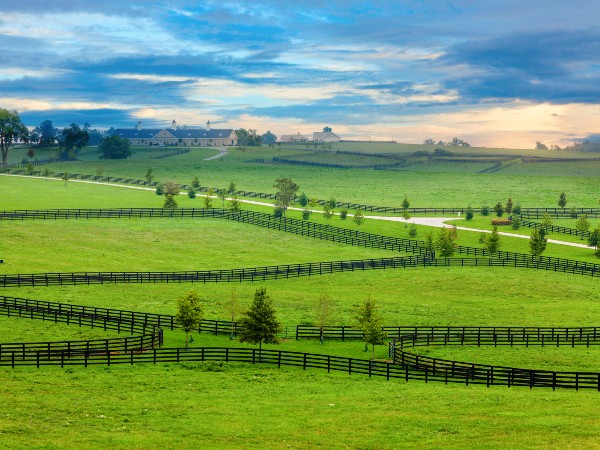
Land that is farmed can be a great place to store your camper, trailer, or RV if it is near a residence. Often farmers have extra spots of open land, and they are happy to allow camping vehicles to be placed on their land for a monthly fee.
While this is not a major income source for them, the extra money can afford them a few needed extras.
This is also a great place for camping vehicle owners because the open land makes maneuvering and parking easy.
In fact, in most cases, owners will find they will be given an easy pull-up and drop-off location near a barn that affords some oversight and easy access.
Like storing on private land, the storing of a camping vehicle on farmland can be problematic if it is going to be stored in soft soil or an unpaved area. In the spring, there is a much higher chance for the camping vehicle to get stuck in the mud or soft soil.
This usually requires the hiring of a specialized towing vehicle to remove it, which can be quite expensive.
Off Season Fairgrounds
Finding safe places to house an RV, camper, or trailer can be difficult, especially during the winter.
However, a fairground can be a great choice.
For people who want to access their camping vehicle off-season for a trip, gaining access can be problematic. For people who are looking for winter parking for camping vehicles, a fairground complex is a good choice.
The parking areas are paved and open, which makes parking easy, and the ability to maneuver on access roads is a breeze. This is not often an option that is offered at larger fairground facilities.
However, smaller fairground owners are usually open to it.
At a Personal Residence
For obvious reasons, this is a great place to store a trailer, camper, or RV. First, it allows for regular access and maintenance of the camping vehicle by its owner. This type of storage is perfect for access as well as personal security and oversight.
It is important for property owners to ensure that this type of camping vehicle storage is allowed at their residences.
While in most cases, it is not an issue, people will smaller land parcels may have town ordinance issues to worry about depending on the location of the vehicle and the home.
When it comes to certain regulated housing types, such as private residential communities and condominiums, camping vehicle owners may find this type of parking is banned within the community.
When examining any of these locations for vehicle storage, it is important to look at all the benefits and possible pitfalls of renting land or space there.
Talking to other camping vehicle owners who store their vehicles at the same location can be helpful.
It is always recommended to talk to the property owner and understand how the rental would work. In most cases, it is wise to have an official written lease with or rental agreement for the camping vehicle parking spot.
This should spell out the rental terms, the availability of access, and the term of the rental space. Additionally, there is a basic outline of questions that camping vehicle owners should consider asking storage facility owners or managers before they rent space. This includes:
• How much Will the Parking Spot Cost Monthly?
• What are the Access Restrictions to the Land or Facility?
• How Secure is the Location, and What Security is There?
• What are the Potential Hazards for Storage at this Location?
• What are The Biggest Benefits of Storing a Camping Vehicle at This Location?
• How Easy is it To Maneuver the Camping Vehicle into the Designated Parking Spot?
Finding a good storage location for a camping vehicle is not as difficult as it seems. While it may feel overwhelming, the task takes proper time and research. There are lots of places to store a trailer, camper, or RV. You have to find the most effective one close by.
Taking the extra time to find the best long-term spot for your camping vehicle is certainly the best way to ensure your vehicle stays safe and is easily accessible when needed.
I’ve even heard some opinions that weight plays a factor in where you store it.
Asking the right questions and doing your research online can be a big help to ensure the right decision is made.
Related Questions
- What are the pros and cons of storing an RV at a year-round campground versus a standard campground?
Storing an RV at a year-round campground offers the advantages of constant access and potentially better maintenance while fostering a stronger sense of community among regular campers.
Conversely, a standard campground might offer cheaper rates but could limit accessibility during off-season periods and might not provide the same level of upkeep or sense of camaraderie.
- How does a private camping resort differ from other storage options in terms of security and access?
A private camping resort typically offers greater security through measures such as 24/7 surveillance, controlled access points, and often, on-site staff, which can be more comprehensive than many storage facilities.
Additionally, access may be more limited, often to resorts, guests or members only, whereas general storage facilities might allow broader access during specific operating hours.
- What factors should be considered when storing an RV on private land or a farm?
When storing an RV on private land or a farm, it’s crucial to consider the legality of RV storage in your local area, the terrain and drainage of the land to prevent damage to the RV, and security measures to deter theft or vandalism.
Also, you should take into account the RV’s exposure to the elements, especially sunlight and precipitation, as these can cause significant wear and tear over time.
- How do auto storage facilities and used car dealers serve as potential storage options for RVs, and what are the potential challenges with these options?
Auto storage facilities and used car dealerships can provide space for RV storage, with the benefit of surveillance and often ample room.
However, potential challenges may include higher costs, limited accessibility to your RV, and potential lack of specialty maintenance or care tailored to RVs as these facilities primarily cater to regular vehicles.
- What are the considerations for storing an RV at a personal residence, and how might local regulations impact this option?
Storing an RV at a personal residence requires considerations regarding available space, accessibility, safety measures, and potential impact on neighborhood aesthetics.
Local regulations may affect this option, as certain zoning laws or homeowners’ association rules might restrict RV storage at home, often necessitating permits, specifying where vehicles can be parked, or limiting the duration of storage.
"Of all the paths you take in life, make sure a few of them are dirt."
-- John Muir
